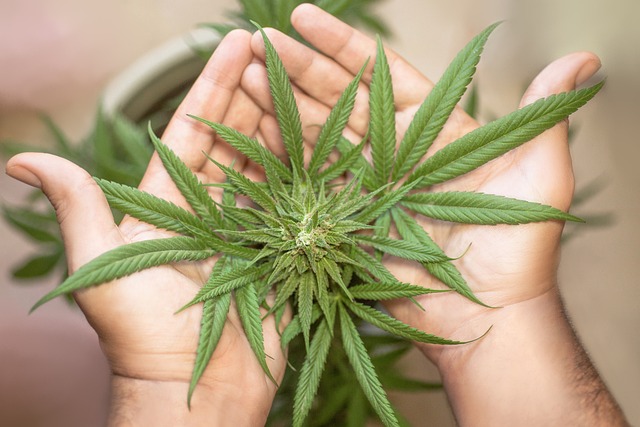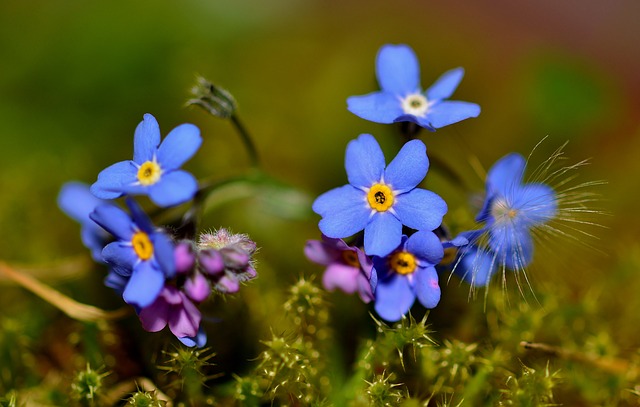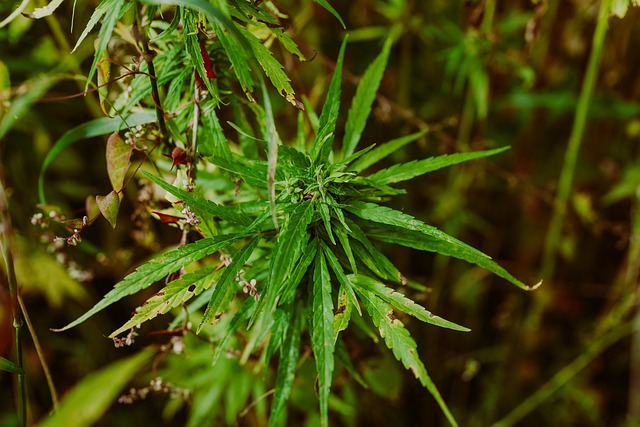The section discusses the therapeutic and psychoactive effects of THCA flower and CBD when combined, emphasizing their unique roles within the Cannabis sativa plant. THCA, a non-psychoactive cannabinoid and precursor to delta-9-THC, has its own anti-inflammatory and neuroprotective properties, while CBD is known for its potential therapeutic benefits in alleviating anxiety and pain without psychoactive effects. The combination of THCA flower and CBD, known as 'CBD synergy,' is the subject of scientific interest due to their complementary effects that interact with the endocannabinoid system to potentially enhance health benefits. This synergy can offer relief for conditions like chronic pain and anxiety disorders without intoxicating effects. It's important for users to be aware of individual differences in response to THCA, potential side effects like anxiety or paranoia at higher doses, and the importance of consulting healthcare professionals. The interplay between THCA flower and CBD underscores the need for further research to optimize their combined use and develop effective cannabinoid-based therapies. Users are encouraged to consider personal tolerance, dosage, and strain selection when utilizing THCA flower and CBD synergy for therapeutic purposes, with a focus on safely experiencing their effects.
Exploring the intricate relationship between THCA flower and CBD, this article delves into the potential side effects associated with their synergistic interaction. As we uncover the nuances of this pairing, it becomes clear that understanding the combined effects is crucial for those incorporating both compounds into their wellness routines. The ensuing discussion, segmented into exploring the side effects, examining the interplay between THCA flower and CBD, and navigating the variations in effects, aims to shed light on this complex dynamic. Join us as we navigate the intersection of THCA flower and CBD synergy, offering insights that may inform your approach to using these compounds responsibly.
- Unraveling the Potential Side Effects of THCA Flower in the Context of CBD Synergy
- The Interplay Between THCA Flower and CBD: A Closer Look at Their Combined Effects
- Navigating the Nuances: Understanding How THCA Flower Side Effects Can Vary with CBD Interaction
Unraveling the Potential Side Effects of THCA Flower in the Context of CBD Synergy

Recent studies have shed light on the potential side effects associated with the consumption of THCA (Tetrahydrocannabinolic Acid) flower, particularly in conjunction with CBD (Cannabidiol). While THCA is non-psychoactive, it interacts with the body’s endocannabinoid system, which can influence a wide array of physiological processes. When THCA flower is used in synergy with CBD, the combination may enhance or alter the effects experienced. For instance, some users report mild psychoactive effects when using THCA flower, although these are generally less pronounced than those caused by THC (Tetrahydrocannabinol). It’s important for consumers to be aware that individual sensitivity to THCA can vary, and side effects such as anxiety, paranoia, or dizziness may occur, especially at higher dosages. The synergy with CBD is thought to modulate these effects, potentially reducing negative side effects and offering a more balanced experience. Users considering the use of THCA flower in combination with CBD should approach dosage cautiously and consult with a healthcare professional if they have concerns about potential interactions or side effects. Additionally, the entourage effect, a phenomenon where cannabinoids are believed to work better together than alone, may influence the overall impact of using both THCA and CBD, suggesting that further research is needed to fully understand the scope of their combined effects.
The Interplay Between THCA Flower and CBD: A Closer Look at Their Combined Effects

Delta-9-tetrahydrocannabinolic acid (THCA) and cannabidiol (CBD) are two prominent cannabinoids found within the Cannabis sativa plant. While THCA is the precursor to the psychoactive compound delta-9-THC when heated, it possesses its own unique properties. Conversely, CBD is non-psychoactive and has gained recognition for its potential therapeutic effects. The synergy between THCA flower and CBD is a subject of growing interest due to the complementary nature of their effects when consumed together.
Research suggests that combining THCA with CBD may enhance the therapeutic properties of both compounds, leading to a more pronounced effect than either compound alone. This synergy is believed to stem from how these cannabinoids interact with the body’s endocannabinoid system, modulating various physiological processes. For instance, THCA has been observed to possess anti-inflammatory and neuroprotective properties, while CBD may alleviate anxiety and pain without intoxication. The combination of these effects can provide a balanced therapeutic experience, potentially offering relief from conditions like chronic pain and anxiety disorders more effectively than using one compound or the other in isolation. Users report that this synergy can lead to a more nuanced effect, with the potential to offer broader therapeutic benefits without the psychoactive “high” associated with THC. Understanding the interplay between THCA flower and CBD continues to be an area of active research, with implications for optimizing cannabinoid-based therapies.
Navigating the Nuances: Understanding How THCA Flower Side Effects Can Vary with CBD Interaction

navigating the subtleties of cannabinoid interactions is pivotal for individuals exploring the therapeutic properties of THCA flower and its synergy with CBD. Tetrahydrocannabinolic acid (THCA) and cannabidiol (CBD) are two prominent compounds in the cannabis plant, each with distinct effects and potential side effects. The interaction between THCA flower and CBD not only influences the efficacy of the treatments but can also alter the side effect profile observed in users.
For instance, THCA, which does not possess psychoactive properties like its decarboxylated form THC, may induce mild psychoactive effects at higher doses, especially when consumed with CBD due to the modulatory action of CBD on THCA receptors. This synergy can lead to a different psychoactive experience than that of THC alone, potentially affecting mood and perception. Additionally, the combination of THCA flower and CBD may enhance or diminish certain side effects such as dry mouth, red eyes, and altered sense of time. Understanding how these cannabinoids interact is crucial for optimizing their benefits while minimizing potential adverse effects. Users should approach such combinations with caution and consider personal tolerance levels, dosage, and the specific strains involved to navigate the nuanced effects of THCA flower in conjunction with CBD synergy effectively.
In conclusion, the interplay between THCA flower and CBD presents a nuanced landscape of potential effects, which underscores the importance of careful consideration when incorporating these compounds into one’s wellness regimen. The article has delved into the various ways in which their combined action can influence individual experiences, highlighting the need for personalized approaches to THCA flower consumption within CBD synergy contexts. It is clear that while both substances offer distinct therapeutic benefits, understanding and managing potential side effects remains a critical aspect of responsible use. Users are encouraged to approach such combinations with caution, guided by professional advice and individual health considerations, ensuring the safest and most effective outcomes.
